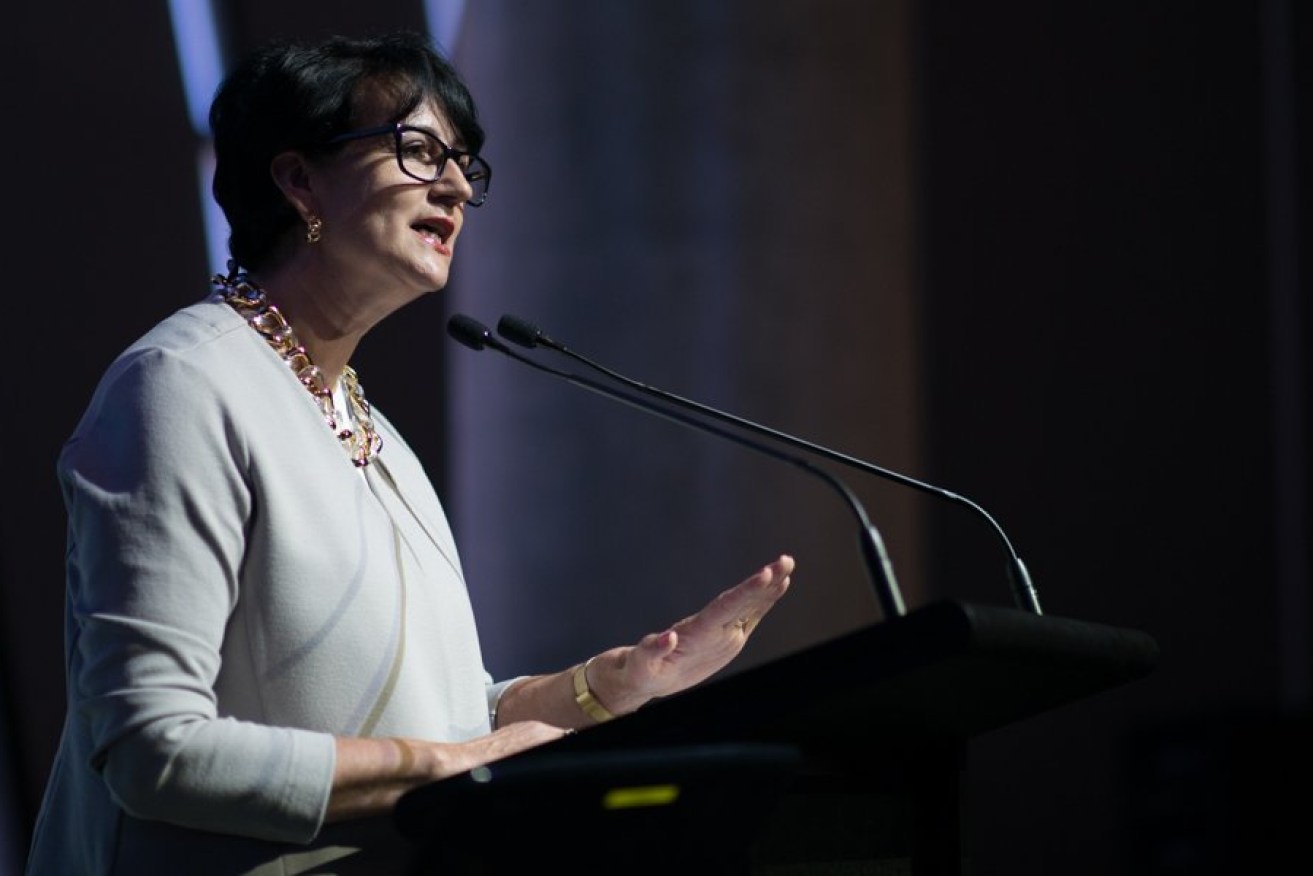Liberals’ election challenge: 54% of votes needed to win
The Liberal Party would need a statewide vote of 54 per cent just to win government under methodology used to determine electoral fairness, the Electoral Boundaries Commission has been told.

Liberal deputy leader Vickie Chapman would lose some of the margin in her safe seat, under one option to redistribute electoral boundaries. Photo: Nat Rodgers / InDaily
In a Federal Court hearing attended by politicians and party stalwarts, lawyers representing the Liberal Party today cross-examined political analyst Professor Clem Macintyre over advice he has provided to the commission, which InDaily last week revealed has begun hearing evidence ahead of formulating boundary changes for the 2018 state election.
Macintyre suggested conventional boundary changes under the existing Act – which requires a redistribution that gives electoral “fairness” to the party that wins a majority of the two-party vote – that would see Opposition frontbenchers Vickie Chapman and David Pisoni see their margins significantly reduced, and Liberal defector Martin Hamilton-Smith lose much of his notional majority.
Macintyre said nominally safe Liberal seats like Bragg, Unley and Waite “abut seats like Ashford and Elder, which are marginal Labor seats”.
“I don’t think it would take a lot of movement to move some of those Liberal voters out [into the Labor seats]… that would be where I’d probably begin my thinking,” he told the hearing.
Nonetheless, he argued it was not the Commission’s role “to necessarily move seats across to the other side of the pendulum simply to reflect the results of the last election”.
However, Macintyre appeared to favour more wholesale reform, arguing: “I would like to see changes in the electoral act but that‘s not for the commission to consider.”
“If you’re still having outcomes that don’t meet the expectations of Section 83 [the Fairness Clause], it may well be that it’s time to revisit that decision and think about a more significant re-throw of boundaries,” he said.
Macintyre also floated methodology which would see independent-held seats removed from consideration, and the boundaries redistributed on the basis of a notional two-party vote across the remaining seats.
“There are a couple of changes the commission could make in relation to its treatment of independents,” he said.
“It’s the independents that have bedevilled the attempt by the commission to provide fairness for major parties.”
Under questioning by Thomas Duggan SC, acting for the SA Liberal Party, Macintyre confirmed a potential headache for the state’s electoral act, with the Nick Xenophon Team polling 25 per cent of the primary vote in a News Corp Australia poll published today.
Duggan suggested it was “quite unworkable to have a merely two-party preferred system if 25 per cent of the electorate was voting for another party”.
Macintyre agreed that the two-party vote’s “utility could become even less valuable to us”.
Duggan argued that the boundary review methodology would effectively mean the Liberals “started with a handicap”.
“When the pendulum was drawn up it was unfair to the Liberal Party,” he said, because it was predicated on it already having the 51.6 per cent of the two-party vote it won in 2010.
“We start with the fact that the Liberal Party has to win 51.6 per cent of the vote merely to retain [their existing] seats.
“In order for it to obtain a swing in its favour to obtain Government, it needs a final two party preferred vote of the magnitude [of 54 per cent]… that’s extraordinary, isn’t it?”
“It’s a challenge, certainly,” Macintyre conceded.
Macintyre argues that the discrepancy is “a function of the large number of votes tied up in rural South Australian seats, and Labor’s capacity to win many seats by narrow margins”.
“I think the task given to the [Boundaries Commission] by the Constitution is almost impossible,” he said.
“[But] the Commission can’t make any allowance for the quality of candidates a party selects… there have been examples where parties have selected candidates that are – well, I’m trying to think of a nice diplomatic way of putting this – not the wisest selection by the parties and unlikely to appeal to the voters in that local area.”
Duggan suggested it was inadequate to base boundary judgements on the basis of a two-party pendulum, which assumed independent-won seats such as Frome and Fisher (since won by Labor at a by-election) were notionally Liberal.
“There’s no way those seats were ever going to end up in the hands of the Liberal Party on that basis,” he said.
“Certainly, I wasn’t anticipating the Liberals would win either of those seats,” Macintyre agreed.
“What we didn’t know was the behaviour of the independents [who won them].”
But Macintyre disputed that the 2014 election result was manifestly unfair though, saying: “To be pretty straightforward about it, had the Liberal Party won two seats that were won by independents… they would have formed Government.
“I think its fair to say that 2014 result did constitute an election where both parties had a fair chance to form Government.”




